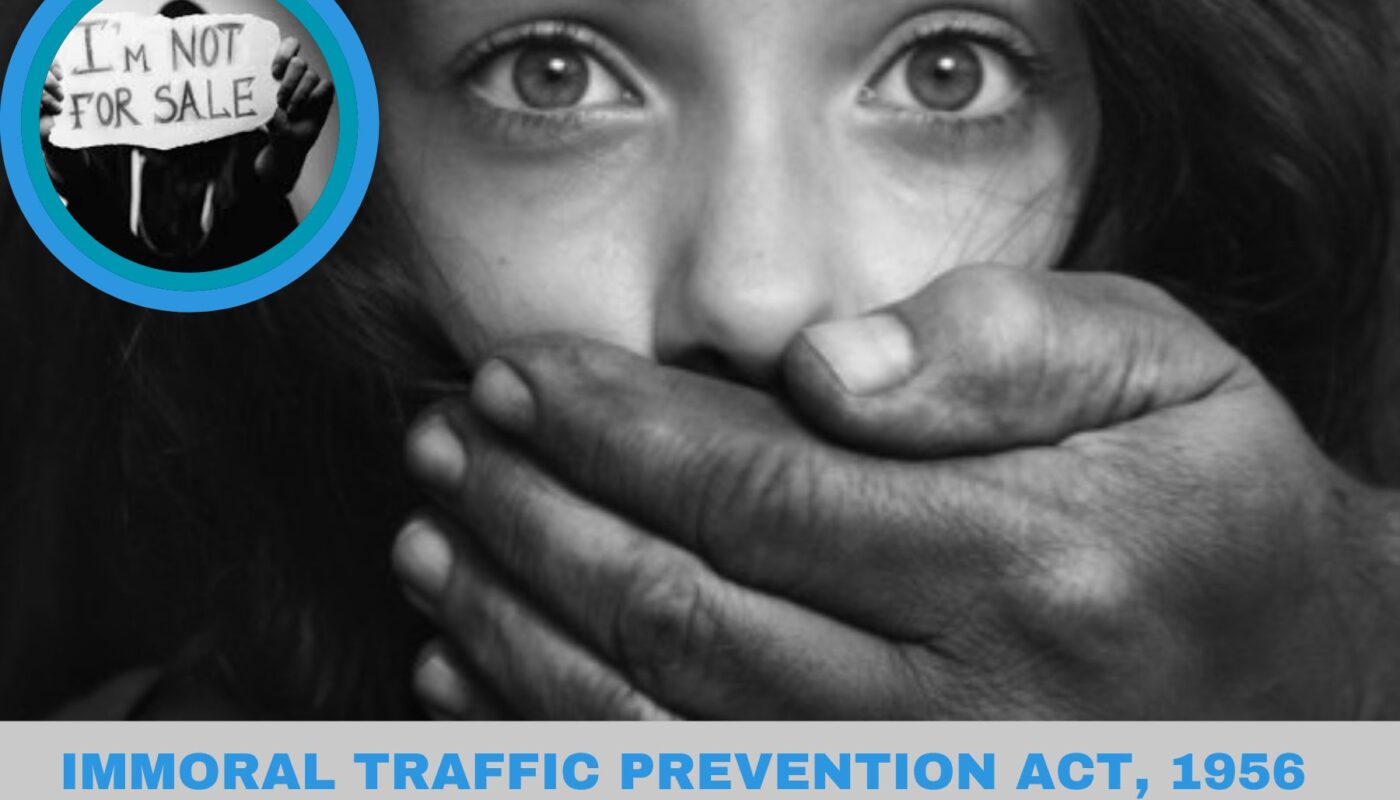Section 2 Definition:
Brothel: The term “brothel” encompasses not only a physical building like a house or a room but extends to any place or conveyance (such as a vehicle) or any part of a building, room, or conveyance. The crucial factor is that this space is utilized for sexual exploitation or abuse, either for the financial gain of an individual or for the mutual benefit of two or more prostitutes.
Prostitution: Prostitution is defined as the act of sexually exploiting or abusing individuals for commercial purposes. It involves engaging in sexual activities in exchange for money or other forms of compensation. This definition highlights the commercial aspect of the exploitation, distinguishing it from consensual sexual activities
Section 3: Punishment for Keeping a Brothel or Allowing Premises to be Used as a Brothel
Keeping or Managing a Brothel: First Conviction: Any individual engaged in keeping, managing, or assisting in the operation of a brothel is subject to rigorous imprisonment for a term not less than one year and not exceeding three years, along with a fine up to two thousand rupees.
Second or Subsequent Conviction: For subsequent convictions, the punishment involves rigorous imprisonment for a term not less than two years and not exceeding five years, in addition to a fine up to two thousand rupees.
Allowing Premises to be Used as a Brothel, Tenant, Lessee, Occupier, or Person in Charge: Individuals falling under this category, who use or knowingly allow others to use premises or any part thereof as a brothel, face imprisonment for a term up to two years and a fine up to two thousand rupees upon the first conviction.
Presumption of Knowledge: It is presumed, unless proven otherwise, that individuals mentioned in subsection 2(a) or 2(b) have knowledge of the premises being used as a brothel if certain conditions are met, such as a report published in a local newspaper or receiving a list of items found during a search.
Voiding of Lease/Agreement: Upon the conviction of a person referred to in subsection 2(a) or 2(b) regarding any offence under those subsections related to premises, any lease or agreement concerning those premises becomes void and inoperative from the date of conviction, regardless of other existing laws.
Section 4: Punishment for living on the earnings of prostitution:
Age Requirement: Any individual above the age of eighteen who knowingly lives, wholly or partially, on the earnings derived from the prostitution of another person is subject to punishment.
Punishment: The punishment for this offense includes imprisonment for a term that can extend up to two years, a fine that can extend up to one thousand rupees, or both.
Special Provision for Child Prostitution: In cases where the earnings are related to the prostitution of a child or a minor, the punishment is more severe. The offender can face imprisonment for a term not less than seven years and not more than ten years.
Acting as a Tout or Pimp: If an individual is found to be acting as a tout or pimp on behalf of a prostitute, it is presumed that they are knowingly living on the earnings of prostitution of another person.
Section 5 Procuring, inducing or taking person for the sake of prostitution
Procuring, Inducing, or Taking for Prostitution: Any individual who procures, induces, or takes a person for the purpose of prostitution, whether with or without their consent, will be punishable.
Punishment: Upon conviction, the offender can face rigorous imprisonment for a term of not less than three years and not more than seven years, along with a fine of up to two thousand rupees.
Protection for Minors: Special provisions apply if the victim is a child or a minor, with more severe punishment including rigorous imprisonment for a term of not less than seven years or even life imprisonment in the case of a child.
Section 6 offense of detaining a person in premises where prostitution is carried on:
Detaining in Premises for Prostitution: According to this section, any person who detains another person, with or without their consent, in a brothel or in premises with the intent for them to engage in sexual intercourse with someone who is not their spouse, is punishable.
Punishment: Upon conviction, the offender can face imprisonment for a term not less than seven years, which may extend to life or up to ten years, along with a fine. The court, under special reasons, can impose a lesser term of imprisonment.
Presumptions: If a person is found with a child in a brothel, it is presumed that an offense has been committed under this section. Additionally, if a child or minor is found in a brothel and is medically examined to have been sexually abused, it is presumed that they have been detained for prostitution or sexually exploited for commercial purposes.
Section 7 Prostitution in or near public places
Prohibition of Prostitution in Public Places: The section stipulates that any person engaged in prostitution and the individuals involved in such activities in specific premises are punishable with imprisonment for up to three months if the premises are within designated areas or within 200 meters of certain public establishments like religious places, educational institutions, hostels, hospitals, etc.
Enhanced Penalties for Offenses Involving Children: If the offense involves a child or minor, the punishment escalates to imprisonment for a minimum of seven years, which may extend to life or up to ten years, along with a fine.
Government Restrictions: The State Government has the authority, considering relevant factors, to prohibit prostitution in specified areas through official notifications. The limits of these areas must be clearly defined, and a notification cannot take effect earlier than ninety days after its issuance.
Section 8 Seducing or soliciting for the purpose of prostitution in public places
Prohibition of Seducing or Soliciting for Prostitution: The section specifies that anyone who, in a public place or within view or hearing distance of a public place, tempts, attracts attention, solicits, or causes annoyance with the intent of engaging in prostitution, shall be punishable.
Section 14 offense punishable under the Act is deemed to be a cognizable offense, allowing for arrest without a warrant in certain circumstances
Arrest Authority: Arrest without a warrant can only be carried out by the special police officer or under their direction, guidance, or prior approval.
Written Order Requirement: If a subordinate officer is directed to make an arrest without a warrant by the special police officer, a written order specifying the person to be arrested and the offense must be provided. The subordinate officer must inform the person being arrested of the order’s contents and show it upon request before making the arrest.
Authorization for Sub-Inspector: A police officer not below the rank of sub-inspector, specially authorized by the special police officer, can make an arrest without a warrant if there are reasons to believe that valuable evidence may be destroyed or concealed, the suspect may escape, or if the suspect’s identity is unknown or suspicious. However, the special police officer must be informed promptly about the arrest and the circumstances leading to it.
Section 15 searches without a warrant
Search without Warrant: When the special police officer or the trafficking police officer has reasonable grounds to believe that an offense under the Act is being committed in a premises where a person lives, and obtaining a search warrant would cause undue delay, they are authorized to enter and search the premises without a warrant after recording the grounds for their belief.
Section 16 of rescue of individuals involved in prostitution activities.
Rescue Procedure: If a magistrate, based on information received from the police or an authorized person appointed by the State Government, has reason to believe that a person is living in or engaged in prostitution in a brothel, the magistrate can instruct a police officer of at least the rank of a sub-inspector to enter the brothel, remove the individual, and present them before the magistrate.
Section 18 Closure of brothels and eviction of offenders from the premises.
Notice and Show Cause: If a magistrate receives information that a house or place within a specified distance of a public area is being used as a brothel, they can issue a notice to the owner, lessor, tenant, or anyone in charge to show cause within seven days why the premises should not be attached for improper use.
Magistrate’s Orders: After a hearing and if satisfied with the evidence, the magistrate can pass orders for eviction of the occupier within seven days, and require approval before re-letting the premises for a certain period (one to three years).



